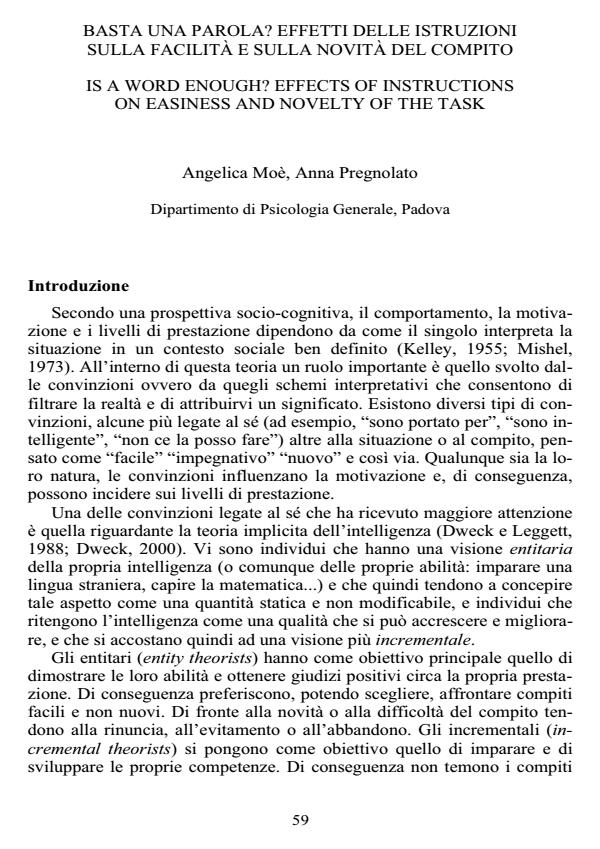Basta una parola? Effetti delle istruzioni sulla facilità e sulla novità del compito
Journal title RICERCHE DI PSICOLOGIA
Author/s Angelica Moè, Anna Pregnolato
Publishing Year 2007 Issue 2007/1
Language Italian Pages 17 P. 59-75 File size 111 KB
DOI
DOI is like a bar code for intellectual property: to have more infomation
click here
Below, you can see the article first page
If you want to buy this article in PDF format, you can do it, following the instructions to buy download credits

FrancoAngeli is member of Publishers International Linking Association, Inc (PILA), a not-for-profit association which run the CrossRef service enabling links to and from online scholarly content.
The present research examined the effects of instructions on the difficulty and novelty of a task to be presented to subjects who believe they can improve (incremental theorists) or not (entity theorists) their abilities. Exp 1 manipulated one dimension at a time. The task was presented as easier, more difficult, new, the same than the one done previously. Exp 2 manipulated a cross between the two characteristics of the task. The task was presented as more difficult and new, more difficult and the same, easier and new, easier and the same. Results showed that the two dimensions (e.g. novelty and difficulty) affect differently the entity and incremental theorist and that the most critical dimensions are more difficult and the same. The aspect most affected is the attribution to ability. Differences have been observed in the pattern of influence between entity and incremental theorists?. The former are more strongly influenced by their perception of their capacity to achieve success and less by the likeability of the task. Results are discussed in a socio-cognitive perspective, which points to the motivational effects of instructions about the characteristics of the task to be performed.
Angelica Moè, Anna Pregnolato, Basta una parola? Effetti delle istruzioni sulla facilità e sulla novità del compito in "RICERCHE DI PSICOLOGIA " 1/2007, pp 59-75, DOI: